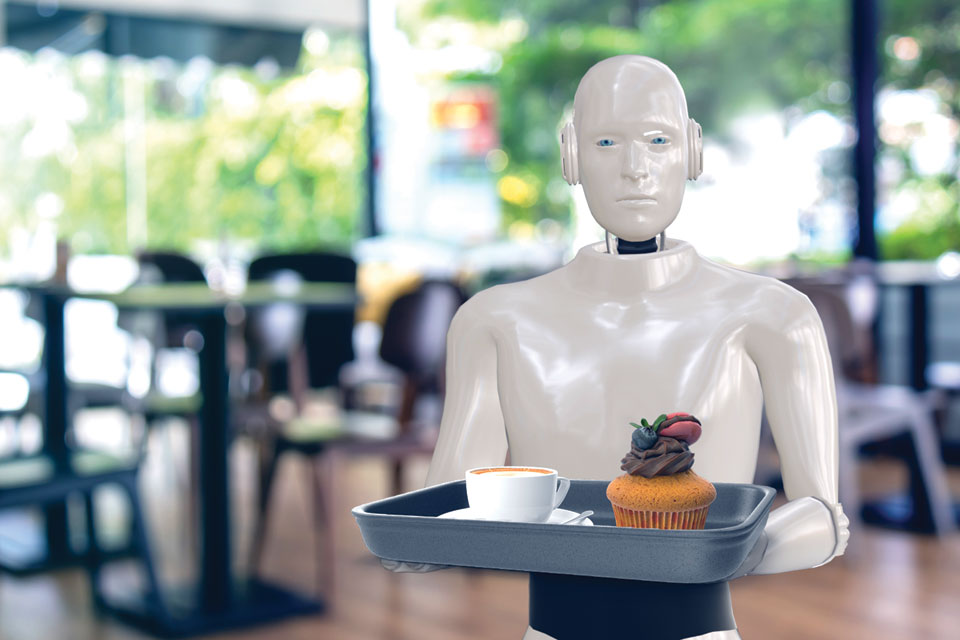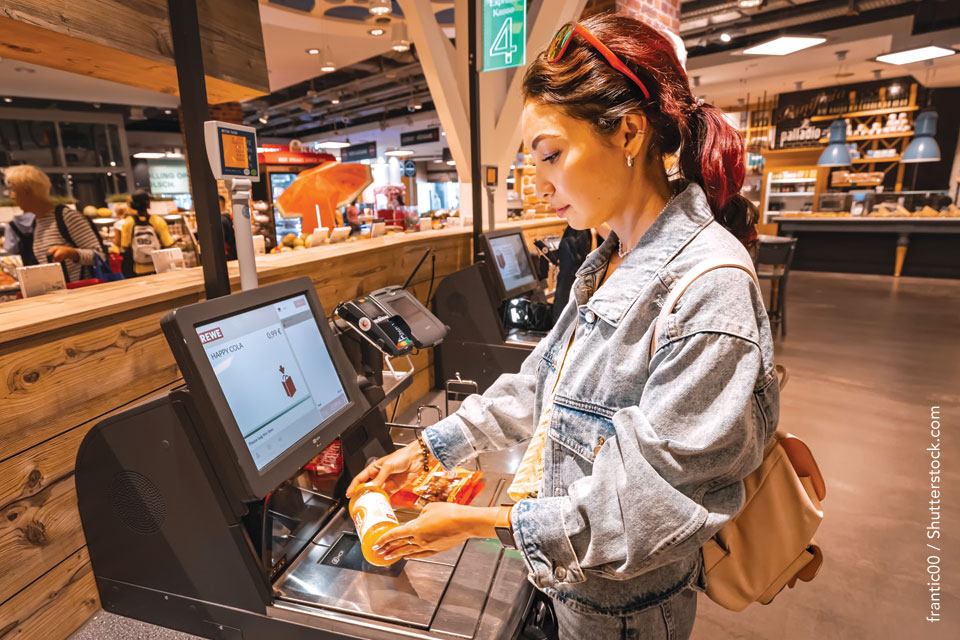
There seems to be a new trend in business today that you have to question how it will affect the quality of our lives. The trend is to reduce staff and replace humans with machines. You can see this in action at various grocery stores, pharmacies, restaurants and, unfortunately, even in restaurant kitchens. Reducing staff and reducing service seems to be something many businesses today have in common.
Cashiers, tellers, and production-line operatives are already being replaced in many companies and “Thinking” machines are forecast to signal a reduced need for humans in many other professions, including driving, call centers, and customer service. Even jobs that are considered highly technical and skilled today, including data analytics and computer programming, are increasingly done by machines. The increase in “artificial intelligence” (AI) seems to be growing faster than some of us are ready for. But the fact is machines are becoming increasingly capable of carrying out complex jobs that require thought, and it becomes clear that the scale of transformation that the workplace is going through is unlike anything we’ve seen before in our lifetimes.
One example to think about is Google, the biggest seller of online ads. In their case, software does much of the selling and placing of search ads, meaning there is much less need for salespeople. Another example of AI replacing humans is at a restaurant my husband and I frequent for lunch. We generally liked eating there and had good meals; however, we have been very disappointed in the meals we have been served the last two or three times. After sending the last meal back because it was cooked improperly, we were told by the manager that the grills have been removed and machines are now preparing the food. The difference in the quality of food is night and day. The bottom line for us is we question if we will be going back.
Retailers and restaurants love to push work off on consumers under the guise that it’s somehow better for them. It’s like when you order a bagel and a cup of coffee and you get handed a plain bagel, butter or cream cheese packets, and an empty coffee cup. The eatery frames that as allowing you to customize your order. In reality, it’s just skimping on labor and making you do things that restaurants usually do for you.


There seems to be a new trend in business today that you have to question how it will affect the quality of our lives. The trend is to reduce staff and replace humans with machines. You can see this in action at various grocery stores, pharmacies, restaurants and, unfortunately, even in restaurant kitchens. Reducing staff and reducing service seems to be something many businesses today have in common.
Cashiers, tellers, and production-line operatives are already being replaced in many companies and “Thinking” machines are forecast to signal a reduced need for humans in many other professions, including driving, call centers, and customer service. Even jobs that are considered highly technical and skilled today, including data analytics and computer programming, are increasingly done by machines. The increase in “artificial intelligence” (AI) seems to be growing faster than some of us are ready for. But the fact is machines are becoming increasingly capable of carrying out complex jobs that require thought, and it becomes clear that the scale of transformation that the workplace is going through is unlike anything we’ve seen before in our lifetimes.
One example to think about is Google, the biggest seller of online ads. In their case, software does much of the selling and placing of search ads, meaning there is much less need for salespeople. Another example of AI replacing humans is at a restaurant my husband and I frequent for lunch. We generally liked eating there and had good meals; however, we have been very disappointed in the meals we have been served the last two or three times. After sending the last meal back because it was cooked improperly, we were told by the manager that the grills have been removed and machines are now preparing the food. The difference in the quality of food is night and day. The bottom line for us is we question if we will be going back.
Retailers and restaurants love to push work off on consumers under the guise that it’s somehow better for them. It’s like when you order a bagel and a cup of coffee and you get handed a plain bagel, butter or cream cheese packets, and an empty coffee cup. The eatery frames that as allowing you to customize your order. In reality, it’s just skimping on labor and making you do things that restaurants usually do for you.
Self check-out is happening in many places, but how effective is this method for retailers. Reports from 2022 have posited that up to 20 percent of people who use self-checkout have stolen something while using it. There have been widely reported instances of even newer unattended checkout solutions being prone to theft. While self-checkout has increased shoplifting, it has also been a cost-saving method for stores.
If someone knows that one retailer is more helpful with more staff on the floor and checkouts manned by efficient, friendly people than another, that may well influence where someone shops. Human inter action and connection building can’t be automated. Some tools may aid in that relationship, but ultimately people matter. Some consumers may prefer automated checkout, but having to scan your own item is a hassle not a service. Retailers have all sorts of ways they can automate but it makes sense to have people in jobs where interaction creates a better experience. Automate the things people can’t see and put as many human beings into helping customers and building connections as possible.
As AI continues to eliminate jobs, you have to wonder how this will affect the work force and the future selection of education younger generations will have to consider and factor into their thinking.
During the first quarter of 2023 we have seen the following companies reduce their workforce:
Twillo layoffs: 17% of workforce laid off (February, 2023)
Zoom layoffs: 15% of workforce laid off (February, 2023
Yankee Candle layoffs: 13% of office workers laid off (January, 2023)
Twitter layoffs: 10% of workforce laid off (February, 2023)
Gemini layoffs: 10% of workforce laid off (January, 2023)
Roomba layoffs: 7% of workforce laid off (February, 2023)
HubSpot layoffs: 7% of workforce laid off (February, 2023)
PayPal layoffs: 7% of workforce laid off (February, 2023)
Roomba layoffs: 7% of workforce laid off (February, 2023)
Spotify layoffs: 6% of workforce laid off (January, 2023)
Google (Alphabet) layoffs: 6% of workforce laid off (January, 2023)
Dell layoffs: 5% of workforce laid off (February, 2023)
Disney layoffs: 3% of workforce laid off (February, 2023)
